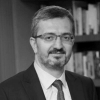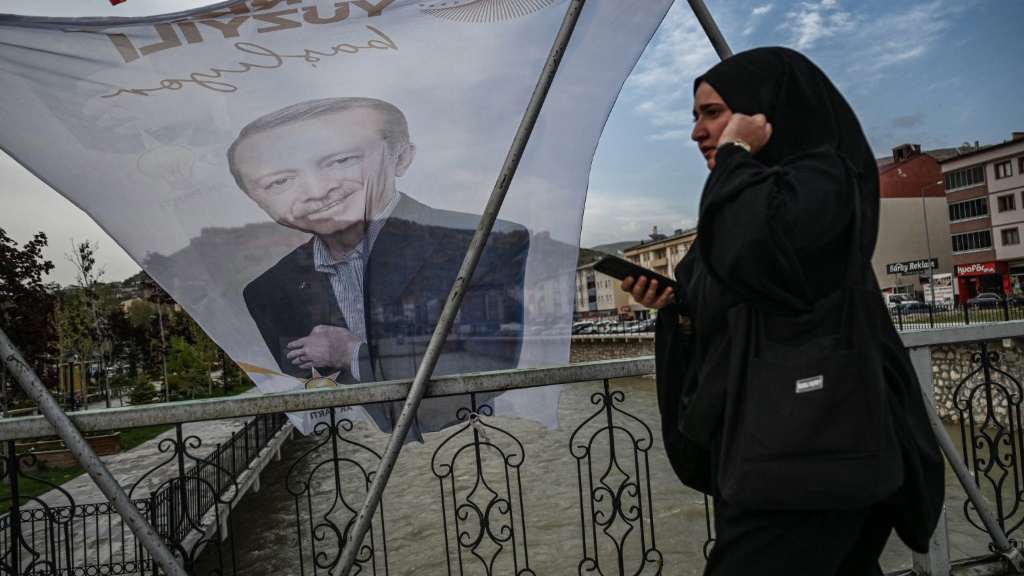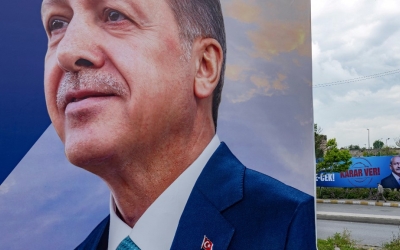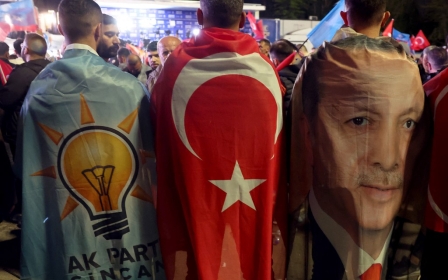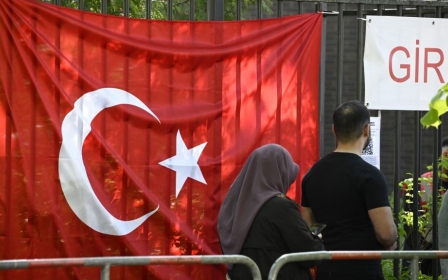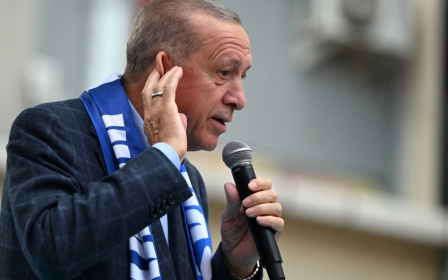Turkey elections: Erdogan and Kilicdaroglu battle for nationalist vote
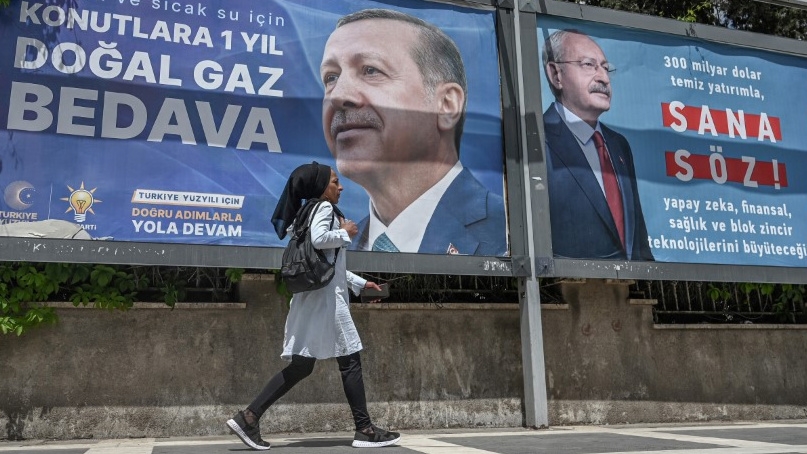
Turkey will hold the second round of its presidential election on Sunday. The Turkish people will determine whether this unprecedented event represents a brand new election, or merely a continuation of the first round.
President Recep Tayyip Erdogan received 49.5 percent of the vote in the first round, ahead of his opponent, Kemal Kilicdaroglu, who received 44.9 percent.
This means that Erdogan will enter Sunday’s election with an advantage. The fact that his People’s Alliance successfully claimed a parliamentary majority on 14 May is another significant advantage.
Deriving confidence from these results, Erdogan has decided to stick to the main focus of his first-round campaign: appealing to voters with the slogan of “keep going with the right man”.
Erdogan seems to think that nationalists are receptive to the notion that the Kurdistan Workers’ Party (PKK) and the organisation of Fethullah Gulen, which is designated as a terror group (FETO), have endorsed Kilicdaroglu’s presidential bid; he blends that argument with the assertion that his own brand of politics is inclusive.
There is no reason to assume that Erdogan’s party and supporters will weaken their resolve due to a sense of victory, even as the incumbent is essentially running a “continuation” campaign. Indeed, the Turkish president has been campaigning in earthquake zones, urging residents to vote.
Furthermore, nationalist Sinan Ogan, who finished third in the first round of the presidential race with 5.2 percent, endorsed Erdogan on Monday, suggesting that the People’s Alliance can comfortably find an additional 0.5 percent in the second round.
It was also unsurprising that Umit Ozdag, the Victory Party leader who endorsed Ogan in the first round, endorsed Kilicdaroglu following negotiations with the Nation Alliance.
Shifting rhetoric
In light of these latest developments, it could be possible that nationalist voters from the first round will be split between the two presidential candidates - while some voters may not participate in the second round altogether in protest.
Since the turnout rate and the way nationalists vote on the day will together play a crucial role in the second round, the opposition’s campaign rhetoric has notably changed.
Kilicdaroglu has signalled his intention to campaign fiercely in the second round, posting a video shortly after the 14 May vote in which he banged his desk and declared: “I am here.”
Aiming to assist the psychological recovery of his base, he has been trying to run an impactful campaign.
This approach is clearly intended to fuel concerns over national survival among Turkish voters in the second round
Having apparently remembered that nationalism is among his party’s core principles, the Republican People’s Party (CHP) leader has been making strongly worded statements on Syrian asylum seekers, warning that Erdogan would bring “10 million more refugees” to the country if his administration were to remain in charge.
Observers have criticised the reliance of Kilicdaroglu - who essentially leads a left-wing, social democratic party - on this type of far-right discourse as part of an attempt to impress nationalist voters.
The radical shift in the opposition campaign has been described as inconsistent and unreliable.
It remains to be seen whether Kilicdaroglu, who portrayed himself as an “inclusive” and calm politician and made heart symbols with his hands at campaign events in the first round, will be able to win over voters with his new and aggressive profile.
Moreover, there is a risk that the CHP’s emphasis on “Turkism” will alienate Kurdish voters, who may simply sit out the second round.
Anti-Erdogan referendum
In addition to making increasingly nationalistic statements on the campaign trail, Kilicdaroglu has been trying to transform the second round into an anti-Erdogan referendum.
It would seem that Erdogan’s comfortable lead in the first round discouraged the opposition from portraying the election as a clash between the incumbent and Kilicdaroglu.
Accordingly, the opposition’s main argument is that Erdogan’s re-election would make everything worse for the Turkish economy and democracy.
At the same time, the opposition has pushed back against the People’s Alliance’s claim that Kilicdaroglu is backed by “terrorist” organisations, alleging that Erdogan himself was “making secret bargains with terrorist organisations behind closed doors”.
This approach is clearly intended to fuel concerns about national survival among Turkish voters in the second round.
But because Kilicdaroglu’s second-round campaign has focused so excessively on Erdogan, it has also chipped away at the popular perception of the main opposition leader as “the man to address Turkey’s pressing problems”.
And the leaders of the remaining five parties, which collectively form the Nation Alliance, have not been campaigning in support of Kilicdaroglu.
Furthermore, some pro-opposition media outlets have complained that right-wing fringe parties failed to support the Nation Alliance adequately.
The fact that the Good Party’s leader, Meral Aksener, kept silent for several days after the first round, also raised questions about her ability to get her supporters to vote for Kilicdaroglu in the second round.
The election results suggest that Aksener’s decision to leave - and then return to - the “Table of Six” alliance - after opposing the selection of Kilicdaroglu as the opposition’s presidential candidate - caused problems within the Good Party base, which have yet to be addressed.
Concrete achievements
Meanwhile, with Kilicdaroglu relying heavily on nationalist discourse, many are wondering which “nationalism” will play a more prominent role in determining the outcome of the second round. This round will focus on which candidate is the “true” nationalist. I would argue that Erdogan stands to benefit from that focus.
Indeed, if anything, Ogan’s decision to endorse Erdogan with reference to relations with the Turkic world, stability, and counterterrorism, signals continuity from the government’s standpoint.
Moreover, Erdogan’s “national” discourse contains concrete achievements and accomplishments. Specifically, he offers voters the dream of the “great Turkey”, with new products and discoveries in various areas, including defence, energy, and diplomacy.
At the same time, the incumbent has responded to Kilicdaroglu’s attacks on Syrian asylum seekers by saying that his administration has been trying to facilitate the repatriation of Syrians, highlighting that this was among the reasons for Turkey’s recent military operations in northern Syria.
It goes without saying that the PKK threat and asylum seekers are the top issues in the minds of nationalist voters in Turkey.
But whereas Erdogan talked extensively about the fight against the PKK on the campaign trail, Kilicdaroglu kept the refugee issue in the background during the first round. He also failed to criticise the AK Party over its previous Kurdish reconciliation policies.
In this regard, I would argue that Kilicdaroglu finds himself at a disadvantage in the public debate when it comes to pinpointing the “real nationalist”.
In addition, Kilicdaroglu’s replacement of his inclusive rhetoric with “othering” arguments could discourage supporters of the Peoples’ Democratic Party from participating in the second round.
Each election has its own dynamics, and it’s clear that both candidates face challenges in remobilising their respective bases.
In the first round, voter turnout was close to 90 percent. Maintaining this same level of democratic maturity in the second round would be the most meaningful message that Turkish voters could deliver to the world.
The views expressed in this article belong to the author and do not necessarily reflect the editorial policy of Middle East Eye.
Middle East Eye propose une couverture et une analyse indépendantes et incomparables du Moyen-Orient, de l’Afrique du Nord et d’autres régions du monde. Pour en savoir plus sur la reprise de ce contenu et les frais qui s’appliquent, veuillez remplir ce formulaire [en anglais]. Pour en savoir plus sur MEE, cliquez ici [en anglais].


